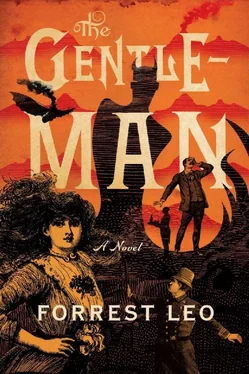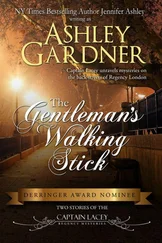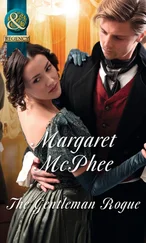The Hefestaeum Club is not a well-thought-of establishment, we discover. We ask a bobby where precisely it is located, and he frowns, spits, demands what we are doing out so late at night, and takes down our names. He doesn’t know who I am, doesn’t believe that Ashley Lancaster is Ashley Lancaster, and doesn’t tell us where the club is. I wish I’d thought quicker and told him I was Pendergast.
‘Are inventors so disreputable?’ asks Lizzie a little breathlessly. I fear she is attracted to scandal.
‘Inventors upset the order of things,’ says Simmons.
‘Like explorers,’ I say.
‘And poets,’ adds Lancaster.
We are a strange party: Lancaster so tall, Lizzie so young, Simmons so prim, and myself so whatever it is that I am,* all wandering Pall Mall in the dead of night. I can’t entirely blame the man for having taken our names.
If you have never explored the streets of London at midnight, you should. I have already told you of my walk to Tompkins’s shop this afternoon, and I do not wish to be tedious. But allow me to observe that whatever is mysterious and lovely in the day is doubly so at night. And when it is very late and there are no other people abroad, fairies dance in the shadows. (That is a secret. Do not tell.)
Pall Mall is a street which I like. Not to visit in the day, and not for its position in society — but taken on purely aesthetic grounds, it is a magnificent place. It is broad, and well paved with enormous flagstones. Upon either side, gentlemen’s clubs loom.
These clubs are such a fixture of our lives and routines that I fear we are not fully attuned to their oddness. Here are organizations which exist solely for escaping the humdrum conundrums of daily life. For bachelors, they offer companionship and an escape from loneliness; for married men, the illusion of lost bachelorhood and an escape from femininity. For a reasonable annual sum, a gentleman of means can come anytime he wants to what quickly becomes his second home. At his club he can eat well and cheaply, he can sleep, he can use the library (which is generally excellent), and he can hobnob with like-minded fellows.
I used to belong to the Athenaeum Club, which is the club, if you are a literary man of note, to which you belong. (I could not of course technically afford it, but I am a gentleman, which means that I have a great store of imaginary money which everyone pretends is just as good as hard tender.) Since my marriage, however, I have let my membership lapse. I have craved escape, certainly, but not company. I went there once, just after my wedding — but several members clapped me on the back and congratulated me and asked me all sort of prying questions, and I left without dinner. I retreated to the solitude of my study.
Often in the last six months I have considered joining the Diogenes Club. It is a club for men such as I. In it, speaking is strictly forbidden and acknowledging your fellow members in any way whatever is strongly discouraged. It is a place to go for companionable solitude and social introspection, and is peopled by lonely misanthropes. But by the time the notion came to me, I had already entrenched myself in my study — and I have said before that I am a creature of habit.
Lizzie is thrilled to be wandering Pall Mall. It is a place which is not actually off-limits to females, but where no female would ever have reason to go — and my sister, if you have not already grasped this, enjoys flouting convention. She is flitting from one side of the street to the other and peering through windows on her tiptoes and grinning like a maniac. I see that it is time to hurry us along.
Despite my acquaintance with clubland, I have never heard of the Hefestaeum, and have no notion where it might be. We have walked nearly the length of the street and have not encountered it. We finally ask a beggar boy if he has heard of our destination.
The urchin is terrified of Lancaster’s size, and refuses to speak to him — so it is Lizzie who asks our way. ‘Hello,’ says she. ‘Do you know of a club of inventors which may be near here?’
The boy nods and points past her down an elegant side street. The buildings are a little smaller than those in Pall Mall proper, and not quite so grand — but still each is rife with colonnades and porticoes and flags. A few windows are lit, but not many. The city sleeps. There is an exception, though — one building, just at the turning of the street, is different. Eerie blue light blazes from its windows, and architecturally it is the queerest sight I have ever seen. It is taller than its neighbours, and narrower, and seems to have been cobbled together from parts of many buildings dissimilar to one another. It, too, has columns — but they stand at appalling angles and seem not to support anything but other columns. It looks as though a long time ago there stood upon the spot a small two-storey cottage; and that an ambitious but unskilled architect decided to build a tower on top of the cottage; and that some time later a less ambitious but more skilled architect converted the tower into something approximating a respectable edifice, but that before the conversion was complete he died without telling anyone the remainder of his plans; and that work was then recommenced by a demented longshoreman with a fondness for drink, after which things became rather chaotic.*
As we gaze at it, there is a sudden flash of orange light from the third floor. The entire building shudders, and a heartbeat later we hear an explosion. I wonder if Will Kensington has lost his eyebrows again.
‘By Christ,’ says Lancaster, ‘it looks as though we’d better get there while there’s still a there to get to. Come on!’*
Our strange group hurries along the empty street and up to the strange building. As we draw nearer, it looms above us, taller than I had realised at first. (‘Childe Roland to a dark tower came,’ says the poetical voice in the back of my mind that is never at quiet.) I wonder that I have not heard more of this place. It is a most distinctive landmark to be so unknown. I suppose its obscurity is an indication of the rapidity with which this city grows and changes — every day there are buildings raised (and razed), discoveries made, new oddities at which to gasp. Small wonder that one peculiar architectural relic is forgotten.
At the door we are met by a butler. He is aptly suited to the place in appearance, by which I mean he is strange looking. He is improbably tall, gangling, with an Adam’s apple which would jut out further than his nose had he not such a staggeringly enormous nose. All ridiculousness halts however at his eyes, which are black and sharp and brook no nonsense.
Before I can utter a word, he says, ‘No women allowed in the club.’ His voice is high and grating.
‘Good Christ but you’re a rude one,’ exclaims Lancaster, rushing to Lizzie’s defence. ‘That’s no way to speak to a lady!’
‘I am very sorry, sir,’ says the butler. ‘It is not my intention to be rude, but club rules forbid women from crossing the lintel.’
‘Damn your rules!’ says Lancaster, clenching his fists.
‘Pardon me, sir,’ says the butler, ‘but rules are the foundation of this very Empire of Britannia.* Without them we should be living in mud huts and eating dung. I do not care if you enter the club or no, but upon my life and honour the lady shall not pass.’
Lancaster, I can see, has reached a boil. I believe deep down he has as little regard for convention as I have.
‘It’s alright,’ says Lizzie before her champion can do anything rash. ‘I’m tired anyway.’
It’s a boldfaced lie and we all know it. I see Lancaster preparing to do something gallant and stupid — but Simmons hurriedly says, ‘As am I, miss. Let’s go home.’
Читать дальше












